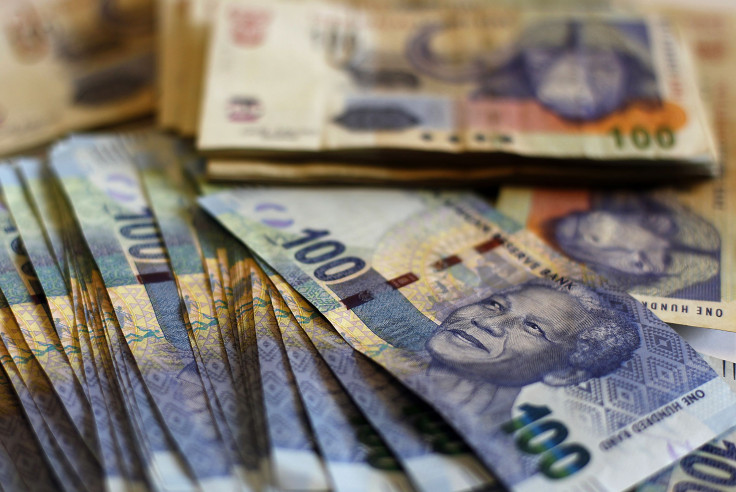Bleeding Money: Africa Is A Net Creditor To The World, Illicit Outflow Actually Exceeds Inflow Of Aid, Investment
Africa Is A Net Creditor To The World: Why That's Not Good News

Africa, a continent often considered a big recipient of donor funds and loans, is actually a net creditor of capital and assets to the rest of the world, according to a new report.
That sounds like an encouraging indicator, in line with various reports that the poverty-stricken continent is experiencing rapid economic growth, declining poverty rates and increasing intra-continental foreign direct investment.
But the flow of capital from African countries to the rest of the world is in large part illicit -- a product of corruption, commercial tax evasion, money laundering and other social ills. It amounts to a massive drain on resources where they are most needed.
“This is a very profound idea,” said E.J. Fagan of Global Financial Integrity, which worked with the African Development Bank to conduct the research. “It goes against the conventional wisdom, and it’s evident that this is one of the major drivers of poverty in Africa.”
The report, published Wednesday, looks into recorded and unrecorded flows of capital to and from African countries between 1980 and 2009. The findings indicate that net resource transfers out of the continent during that period, adjusted for inflation, amounted to somewhere between US$597 billion and $1.4 trillion -- and that doesn’t even include the value lost to drug trafficking and smuggling.
"The resource drain from Africa over the last 30 years -- almost equivalent to Africa's current GDP -- is holding back Africa's liftoff," said Professor Mthuli Ncube, chief economist and vice president of the African Development Bank.
You won’t find these outflows noted in the official record books. Researchers compiled the data by studying discrepancies, for instance by comparing the records of mutual trading partners and noting where mismatches occur, or by using data from outside sources -- like the World Bank or the International Monetary Fund -- to chart capital flows that were misreported by domestic officials.
Fagan noted that African assets can be spirited outside the continent in a variety of ways. “Some of the money goes to tax havens; major destinations include places like the Cayman Islands, Mauritius and the British Virgin Islands,” he said. “But a lot of the lost value goes to banks or properties in Western countries like the United States and the United Kingdom. We know anecdotally, for instance, that [former Libyan leader] Muammar Gadhafi had large amounts of property in places like the United Kingdom, and Libya is now trying to get some of those assets back.”
If outflows from Africa are in fact as high as $1.4 trillion, they far exceed what’s coming in. In other words, the value lost between 1980 and 2009 could actually replace all of the foreign assistance and direct investment that developed countries have poured into the continent during the same period.
It is no secret that Africa has the resources to propel its own development. The continent is rich in oil, minerals, timber, arable land and other assets. But poverty is rampant -- especially south of the Sahara, where 48.5 percent of the population lived on less than $1.25 a day in 2010. Food insecurity, shoddy infrastructure and a lack of electricity affect tens of millions of people across the continent.
In this context, the massive leak of assets outlined in Wednesday’s report is nothing short of tragic. If Africa’s own assets were put to better use, the continent could meet many of its own direst needs.
The largest exporter of illicit capital from Africa is Nigeria, an oil-rich country that suffers one of the world’s most egregious wealth gaps. South Africa, whose ruling African National Congress party is plagued by corruption, came in second. Third was Egypt, which has had a close relationship with the West for decades but is now struggling for stability in the aftermath of the 2011 revolution. These countries top the list in part because they have so much to lose; they boast the continent’s three largest economies. In terms of illicit outflow as a percentage of GDP, the worst offenders are smaller nations: Djibouti, the Republic of the Congo and Equatorial Guinea.
Stanching the illicit outflow of funds will be necessary to ensure sustainable growth in Africa, and action will be required from all sides. The report recommends that outside of the continent, banks and countries should pursue initiatives to clamp down on the absorption of illicit monies and assets. At the same time, African countries can implement policies to boost transparency and reduce corruption.
There is reason to be optimistic. Western leaders are currently pursuing a plan to automate the multilateral exchange of tax information, which could deal a severe blow to tax evaders around the world, especially if it is expanded to include developing countries. This will be addressed at the G8 Summit in Ireland this June.
In Africa, rapid economic growth and the concurrent expansion of middle classes all across the continent may help to spur progress as increasingly empowered citizens demand higher levels of transparency from top officials. “The chances of success will increase markedly if African governments themselves take domestic measures to address corruption, strengthen their anti-money laundering efforts, and also improve their investment codes,” said the report. “None of these is technically difficult, but they all require political will for success.”
© Copyright IBTimes 2025. All rights reserved.






















